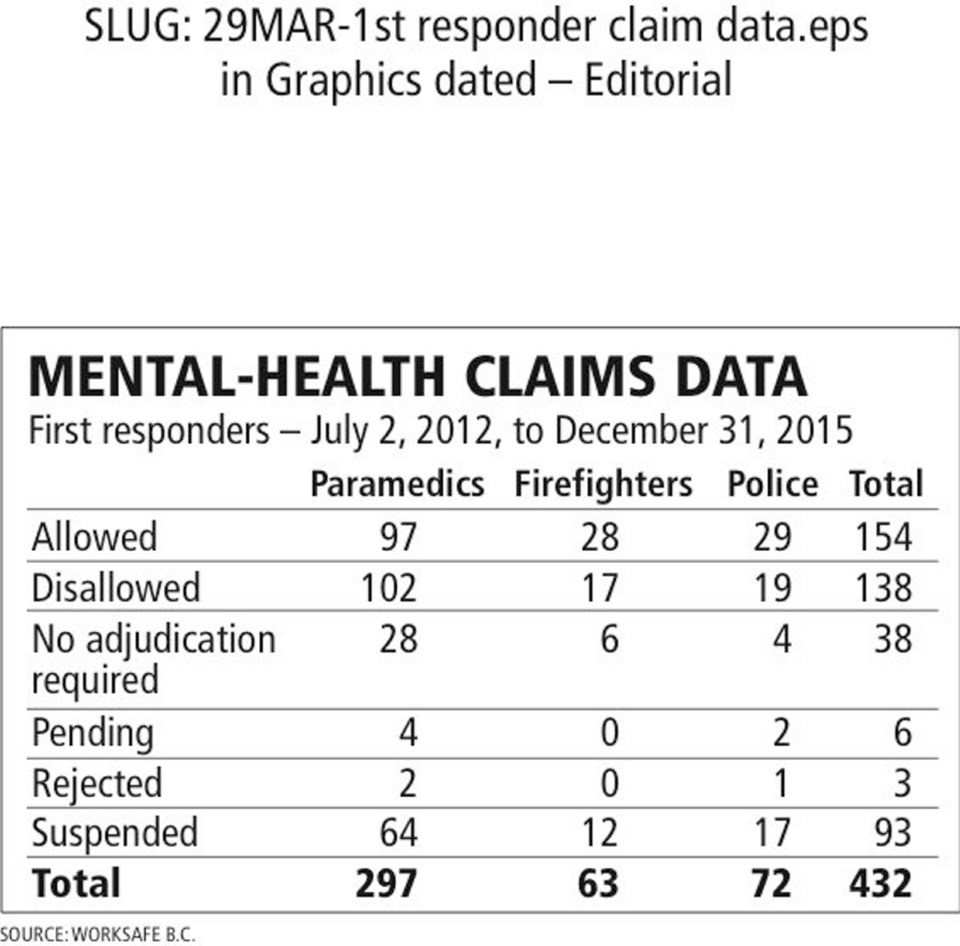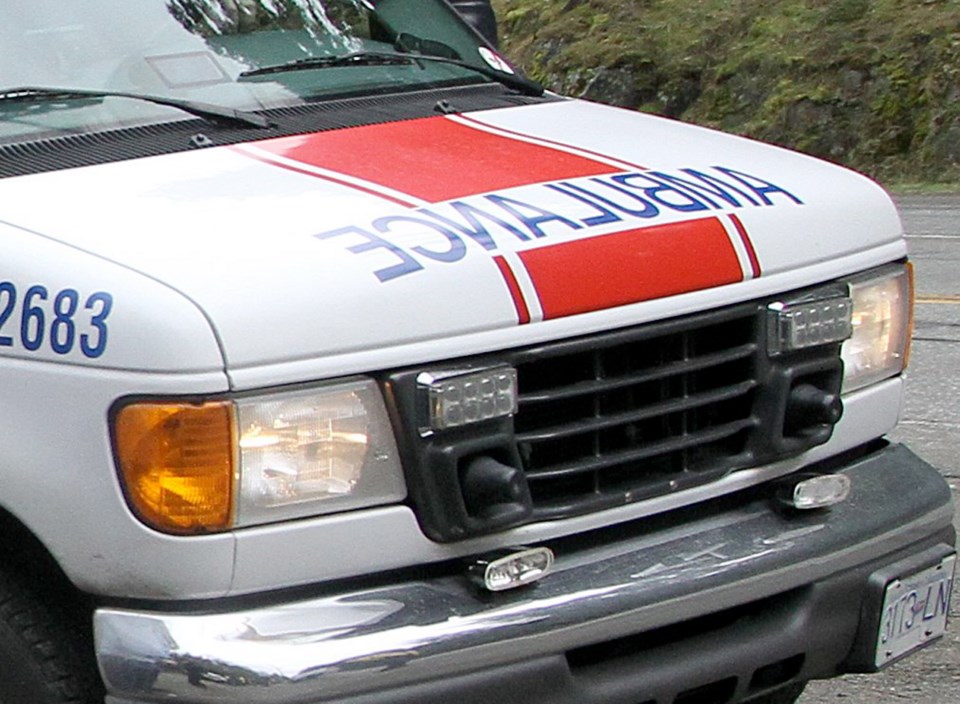B.C. expanded workplace compensation for mental-health issues in 2012, leading to nearly 9,000 claims registered with WorkSafe B.C. by the end of 2015.
It’s still “a small percentage of all of the injuries we deal with,” but the move reflects the legislation, the changing nature of work and declining stigma about psychological versus physical disabilities, said Jennifer Leyen, a WorkSafe B.C. director.
Previously, only physical injuries were covered, thus corrections guards who had urine flung at them by inmates were not eligible to claim for the mental stress, she said, nor bus drivers contending with passengers spitting at them.
“There has to be workplace causation, but it doesn’t always have to be primary causation,” said Leyen, director of special care services and disability awards. “But it has to be more than trivial or insignificant.”
Of the 8,890 mental-health claims registered, about 60 per cent progressed as far as a decision to allow or disallow. About 30 per cent of claims are suspended due to workers’ fears that their employers could gain access to their health records, while others were filed primarily to get incidents on the record.
Of the claims that progressed, 27 per cent — 1,402 — were allowed and compensation benefits paid, while 3,860 were disallowed.
For first responders, however, 53 per cent of claims were allowed — because their jobs by definition expose them to “many more traumatic circumstances,” Leyen said.
While other provinces — most recently New Brunswick — are moving to enshrine post-traumatic stress disorder as a workplace health issue for emergency first responders, the B.C. Labour Minister stands by “some of the broadest compensation legislation for mental disorders in Canada.”
Shirley Bond said in a statement to the Times Colonist that B.C. covers a wide variety of work-related mental disorders, including PTSD, arising from traumatic events, significant stressors such as bullying or harassment, or a cumulative series of significant work-related stressors.
Mental-health claims are dominated by health-care workers and bus drivers. “Paramedics are far down the list,” Leyen said, although they submit more claims than firefighters and police officers.
WorkSafe has a “a very comprehensive network of services and supports for psychologically injured workers,” she said.
Social workers are on call around the clock throughout the province, to respond to a crisis, often used by people whose claim were disallowed but requires help to transition to communitysupports.




